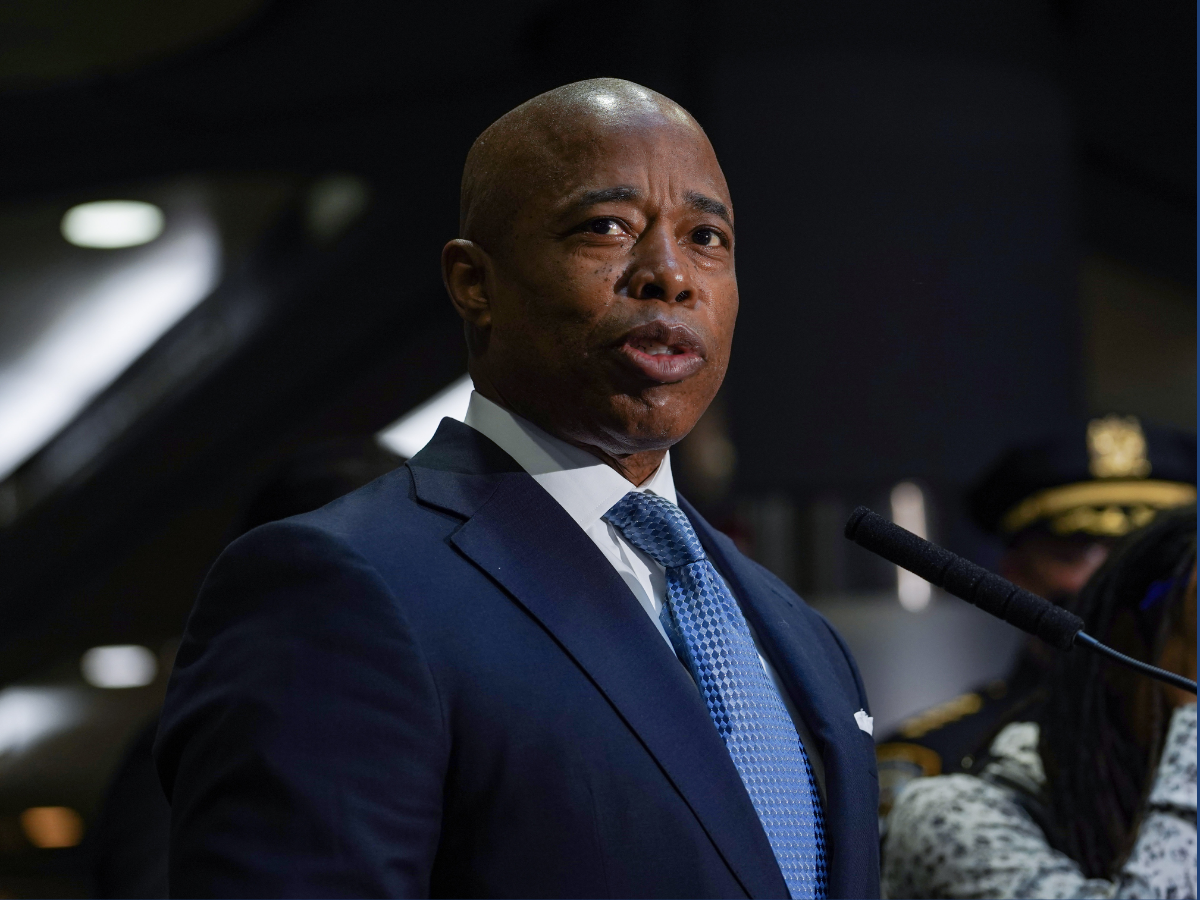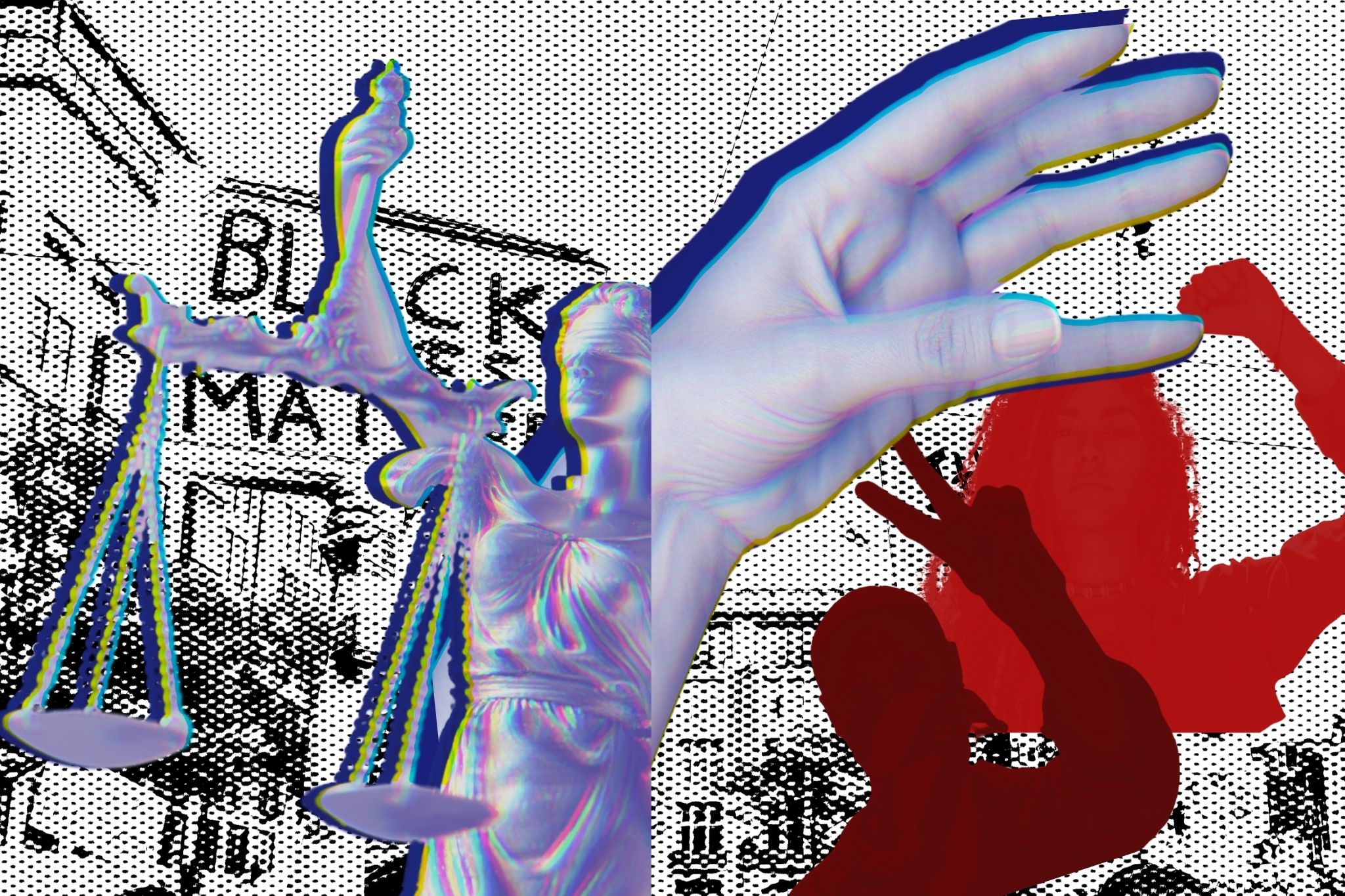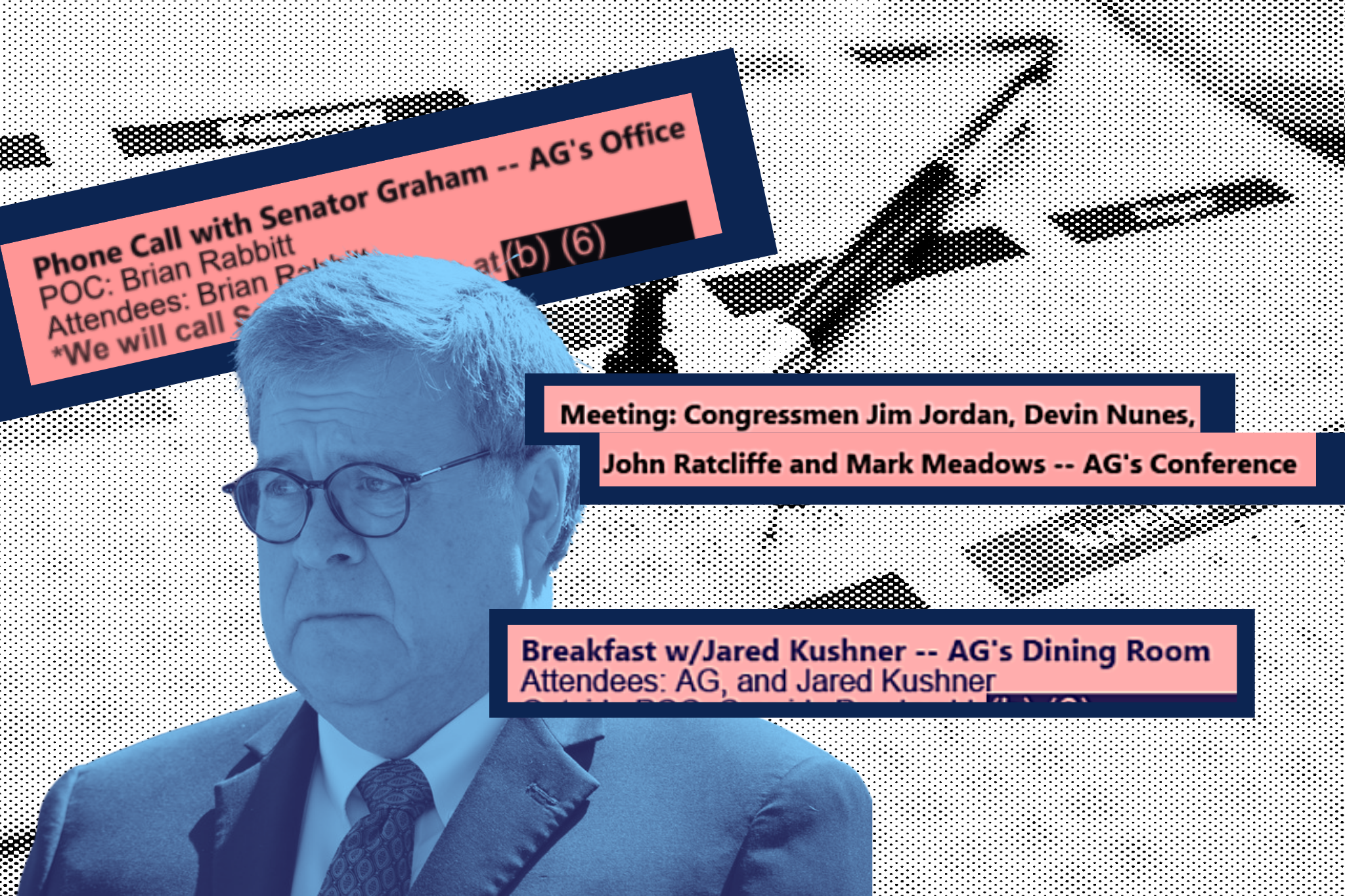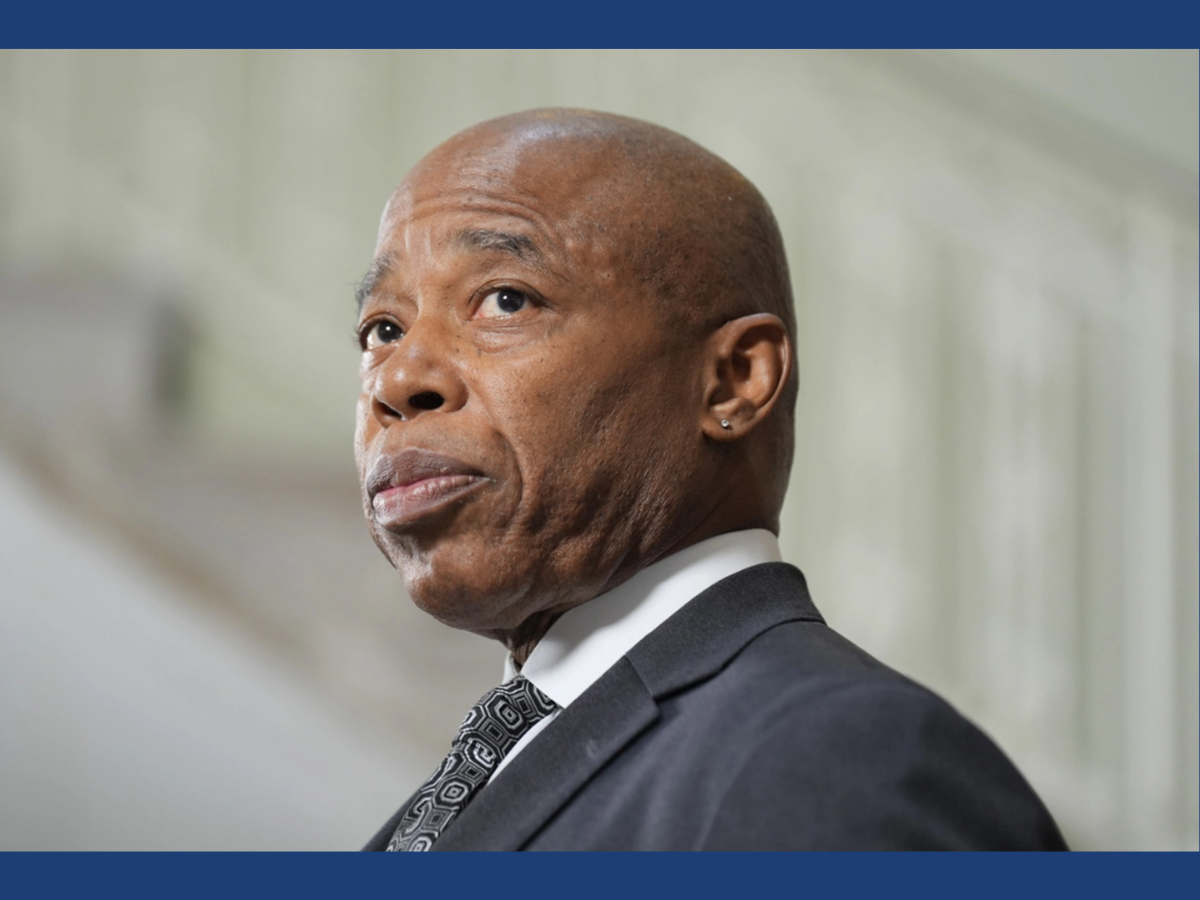
Politicization of the Justice Department
President Trump has repeatedly and publicly called for the Justice Department and the FBI to investigate his perceived enemies — and in doing so, he's crossed a longstanding line against politicizing our nation's law enforcement agencies.
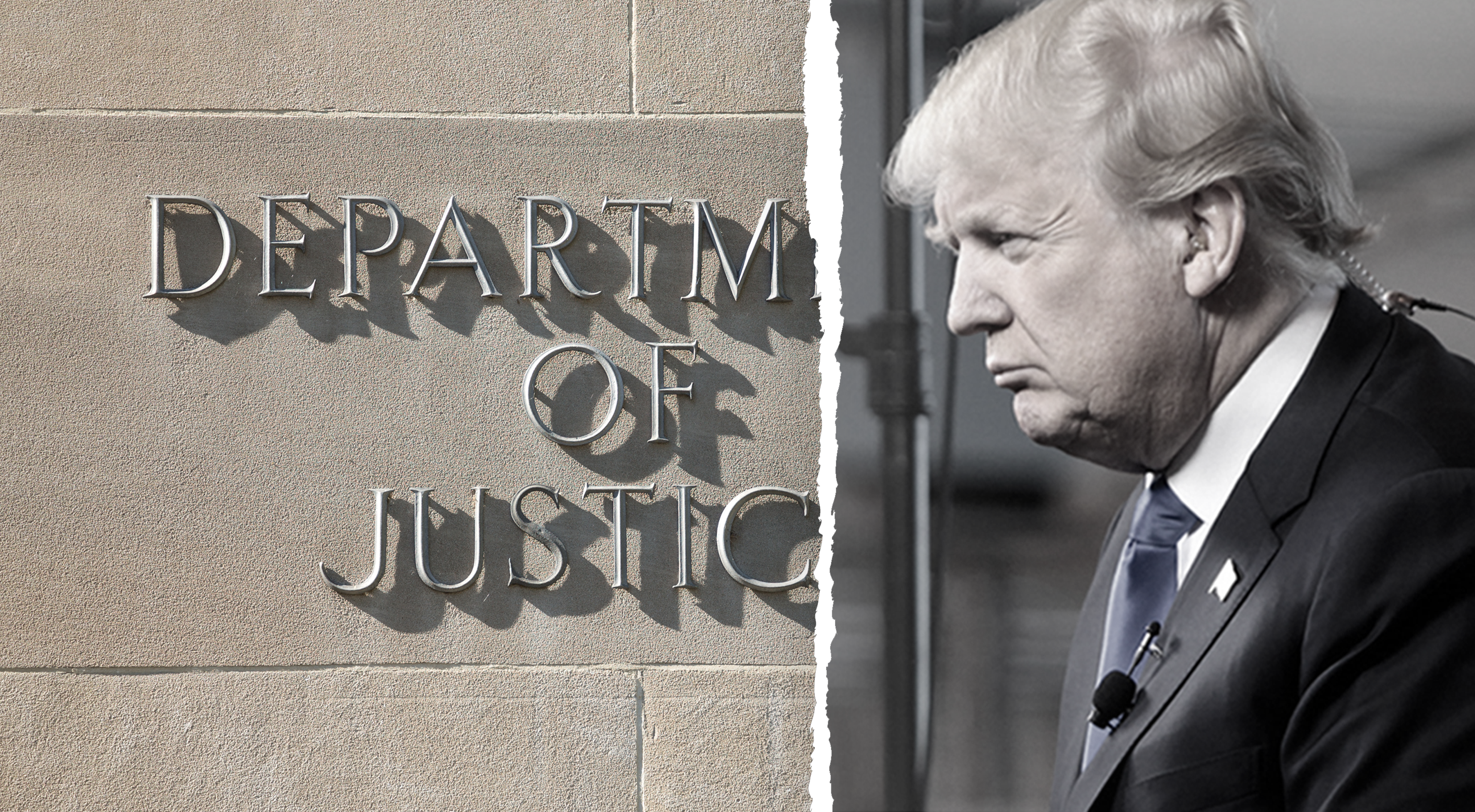
Since taking office President Trump has regularly called upon the Justice Department to investigate individuals he perceives as political opponents, especially his 2016 general election opponent Hillary Clinton, senior officials within the FBI, and Special Counsel Robert Mueller. Since his acquittal by the Senate in the impeachment trial, the president has exerted further political pressure on the department, including having expressed his displeasure at sentencing recommendations from prosecutors in the case against his associate Roger Stone — complaints that were apparently answered by Justice Department leadership’s intervention in the case, which was in turn praised by the president.
This is a horrible and very unfair situation. The real crimes were on the other side, as nothing happens to them. Cannot allow this miscarriage of justice! https://t.co/rHPfYX6Vbv
— Donald J. Trump (@realDonaldTrump) February 11, 2020
Congratulations to Attorney General Bill Barr for taking charge of a case that was totally out of control and perhaps should not have even been brought. Evidence now clearly shows that the Mueller Scam was improperly brought & tainted. Even Bob Mueller lied to Congress!
— Donald J. Trump (@realDonaldTrump) February 12, 2020
Similar tweets go back to 2017, with Trump having called on the Justice Department to open particular investigations on several occasions.
Crooked Hillary Clinton’s top aid, Huma Abedin, has been accused of disregarding basic security protocols. She put Classified Passwords into the hands of foreign agents. Remember sailors pictures on submarine? Jail! Deep State Justice Dept must finally act? Also on Comey & others
— Donald J. Trump (@realDonaldTrump) January 2, 2018
….People are angry. At some point the Justice Department, and the FBI, must do what is right and proper. The American public deserves it!
— Donald J. Trump (@realDonaldTrump) November 3, 2017
Pocahontas just stated that the Democrats, lead by the legendary Crooked Hillary Clinton, rigged the Primaries! Lets go FBI & Justice Dept.
— Donald J. Trump (@realDonaldTrump) November 3, 2017
Former FBI Director James Comey also testified that Trump asked him for a pledge of loyalty and then requested that Comey drop the investigation of former National Security Adviser Michael Flynn — and after Comey refused both requests, he was fired.
Troublingly, it appears that the Justice Department is allowing itself to be pressured by Trump’s demands. In November 2017, then–Attorney General Jeff Sessions informed members of Congress that he was considering appointing a second special counsel to investigate Hillary Clinton’s alleged role in approving the sale of a uranium company to a Russian state company. In January 2018, after yet another round of tweets from Trump, the Daily Beast reported that Justice Department officials had agreed to take a “fresh look” at Clinton’s use of a private email server. Two years later, in January 2020, the department ended the investigation, conceding nothing of consequence was found.
There also appears to be consequences for officials who do not follow Trump’s bidding. In February 2020, former U.S. Attorney for the District of Columbia Jessie Liu resigned from the Treasury Department after Trump withdrew her nomination to serve as undersecretary for terrorism and financial crimes. News reports suggest that Liu’s resignation and revoked nomination were related to Trump’s dissatisfaction with her work as U.S. attorney — specifically, Liu’s perceived lack of involvement in politically sensitive investigations, including the cases of Trump ally Roger Stone and former FBI Deputy Director Andrew McCabe.
Liu’s resignation occurred following the surprise reversal of Justice Department sentencing recommendations in the Stone case, a reversal that prompted the withdrawal from the case of multiple career prosecutors. In May, another stunning reversal occurred, with the Justice Department said it would be dropping its case against former National Security Adviser Michael Flynn, who had pleaded guilty to lying to the FBI. The motion to dismiss the charges was signed by interim U.S. Attorney for the District Timothy Shea, and raised serious questions about political interference at the Justice Department as well as about the involvement of Attorney General Barr.
As the president attempts to use his power to use his power to have his enemies investigated, we’re seeking answers from the Department of Justice.
